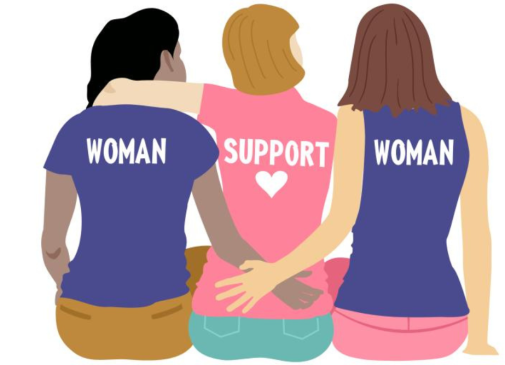
If you have uterine fibroids, you may wonder how they will affect your pregnancy and delivery. Here is what you need to know.
Uterine fibroids are benign tumors that grow in the uterus. They are very common, affecting up to 80% of women by the time they reach menopause. Most women with fibroids have no symptoms, but some may experience heavy menstrual bleeding, pain, or pressure in the pelvis.
During pregnancy, uterine fibroids rarely change size or grow larger. In fact, in a study conducted by the National Centers for Biotechnology Information (NCBI), 60% to 78% of fibroids monitored during pregnancy did not change, and the ones that did (22% to 32%) only grew a small amount in the first 10 weeks of pregnancy.
The risk of complications during pregnancy with fibroids is low. Most women with fibroids can successfully get pregnant and have a healthy baby. However, there is a slightly increased risk of preterm labor and cesarean delivery. The NCBI study found that 10% to 30% of women with fibroids will have complications during pregnancy. In most cases, these complications were not severe.
What Types of Fibroids Would Affect Labor and Delivery?
It’s important to note that all fibroids are different. If a fibroid grows too large, blocking the cervix or fallopian tubes, it may cause a woman to have difficulties conceiving. Similarly, fibroids that protrude into the uterine cavity or change their shape (submucosal fibroids) may cause complications during labor. Large fibroids during pregnancy can also potentially cause complications during labor and delivery.
If you’ve been diagnosed with fibroids that are more than three inches in diameter, your doctor will want to monitor your large fibroids during pregnancy. Although smaller fibroids (under two inches) are more common, fibroids can grow in response to your hormones. Large fibroids during pregnancy may cause more complications than smaller ones, but it usually depends on if they protrude inward (submucosal) or are attached within the uterine cavity (peduncular).
Your first ultrasound, usually done between the 6 to 8-week mark, may indicate if you have fibroids.
Could Fibroids Cause Complications During Labor?
Depending on your fibroids’ size and location, some can cause labor complications. While most women can have their baby full term and vaginally, others may need a cesarean section (c-section) or undergo preterm labor.
Talking to your doctor about potential complications during labor caused by fibroids is important. Ask your doctor as many questions as possible and let them know any symptoms you may be experiencing along the way.
Fibroids and Preterm Labor
Fibroids don’t always cause preterm labor, but there are a few factors that may cause this to occur. One of the main reasons you may have your baby prematurely is if you are experiencing pain caused by your fibroids. This abdominal pain or cramps can sometimes cause uterine contractions, which could result in early delivery.
It’s important that your doctor knows you have uterine fibroids early on in your pregnancy so you both can have a birth plan in place in case complications arise. Because uterine fibroids are fairly common, doctors know how to watch for signs in your third trimester.
Cesarean Section and Fibroids
Like other complications during labor due to fibroids, it depends on how large your fibroids are and where they are in your uterus. Fibroids that grow inside the uterine cavity, compared to ones that grow within the uterine wall, are more likely to cause issues. According to the NCBI, women with fibroids have a 3.7-fold increased risk of cesarean delivery.
Even though women with fibroids are at an increased risk for delivering non-vaginally, having a cesarean section and fibroids shouldn’t stress you out. It’s important to note that c-section births with fibroids are typically safe for both mother and baby. Modern medical techniques allow doctors to perform c-sections easily with few complications during labor. Babies can often be delivered via c-section even while large fibroids are present.
After fully recovering from postpartum, your fibroids can easily be treated through nonsurgical treatments like uterine fibroid embolization (UFE).
Other Potential Fibroids and Pregnancy Complications
Even with modern medicine, labor and delivery can lead to potential complications. It’s important to be aware of some of the less common fibroids and pregnancy complications, such as:
- Miscarriage during pregnancy (usually within the first or second term)
- Placenta abruption (when the placenta separates from the inner wall of the uterus before birth)
- Malpresentation (abnormal positioning of a fetus at the time of delivery)
- Labor dystocia (obstructed path of the fetus during delivery)
- Postpartum hemorrhage (heavy bleeding after the birth)
However, modern medical techniques can rectify many of these less common complications during labor due to fibroids.
Could Fibroids Rupture During Labor?
If you’re worried about your fibroids rupturing during labor, we can put your concerns to ease. Spontaneous uterine fibroid rupture, where the fibroids burst open during pregnancy or labor, is extremely rare. Fibroid bursts in a non-laboring uterus are already rare – less than 10 people have reported this happening in the last decade.
Even as you push a tiny human being out with immense pressure, your fibroids will stay intact within the uterus. In addition, women passing uterine fibroids during vaginal delivery is also a rare occurrence.
Treatment for Fibroids After Delivery
When you’ve recovered from postpartum, you may need to explore fibroid treatment that fits your needs. The Fibroid Fighters Foundation can provide information on treatment options and centers to help ease your fibroid pain or bleeding.
There are nonsurgical treatment options like uterine fibroid embolization (UFE), where you can get fibroids treated in an outpatient setting with no anesthesia or overnight stay. For more information, contact us online or email us at [email protected].







